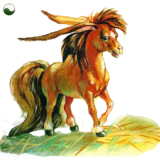"Definition of respect?" as written by me back in 2015 for our email group · 10:05pm Oct 11th, 2019
--------------------------------
I think Ken put it straight back in time:
Ethical Consideration
There is another consideration that supersedes all other changes in how humans will interact with dolphins in the new approach. Humans are committed by laws to prevent and stop the enslavement of language users with capabilities or the potential to achieve those capabilities at the adult human level. It is still scientifically possible that dolphins may someday demonstrate communication abilities at or near the adult human level using a human whistled language or a deciphered dolphin communication code. For this reason dolphin subjects must be accorded the same respect as humans if they are to be used in language experiments and programs. Because of this potential and the need for trust in order for the social approach outlined above to work, this respect must be built in and implemented from the planning stage of developing the language and human / dolphin interaction programs.
Applicable to anything we hope to do *for* (about to become uncaptive) captives, or libre dolphins/cetaceans. In fact, I think _we_ don't need language for justifying our own seeking of most accurate (from cetacean's own perspective!) respect, not on paper, but in all our acts directly towards them, and in all our talks about them, too (so, please be careful with scientific jarogon)! But language is good Big Goal, and among other things enables its users to show more fine-tuned respect! Exactly due to possibility to have more direct access to someone's inner world.
There is another definition, in attach. (I have another version of it, more directly aimed at specific place showed in bg picture!). Of course I also have ebook (pdf) from where I so shamelessly copied this definition!
There is longer text from Anthony Weston's book,
“Etiquette” is a genuine means of discovery. As we said above,
we oppose the usual view that puts knowledge of animals, for instance,
before any possible (serious, intellectually respectable) ethical response
to them. On our view, we can have no idea of what other animals are
actually capable until we approach them ethically. Now we need to spell
out this reversal more carefully.
Begin here: Certain kinds of self-fulfilling prophecies turn out
to be crucial in ethics. There is, in particular, a kind of self-fulfilling prophecy in which one of the main effects of the “prophecy” is to reduce someone or something in the world—to make that person or thing less than they or it are or could be, to diminish some part of the world’s richness and depth and promise—and in which this reduction in turn feeds back not only to justify the original prophecy but also to perpetuate it. This process is therefore self-validating reduction. There are all too many examples. Animals reduced to pitiful or hostile vestiges of their former selves, whose incapacities and hostility are then taken to justify exploitation or further violence.
[The Incompleat Eco-Philosopher Essays from the Edges of Environmental Ethics , p. 76]
Now, if we look at this omnipresent behaviorism, and its brainchild operant conditioning, heavily and without any alternative practicized in all dolphinariums, by all those captive scientists ....If we also consider how often modern 'marine biologist' tend to dismiss and reduce beings, or artificially capping them in language used... I hope you see real danger here! I understand our *aim* is to overturn this degradation - yet, if we will cling to same language, same methodology, same mid-goals ...we will fail like most of those scientists, while even formally we may success! But we know it about apes already - they also learned language - yet, whole scope of THIS discovery was dismissed and minimized, even, indirectly, by very same researches who advocated for ape's true language use for all their life! Because all those researchers failed to recognize fundamental wrongs of captivity? While, Savage-Rumbaugh come close to this def. of self-validating reduction?
1. Our perception of ape mental abilities determines the handling of our captive apes.
2. The handling of our captive apes determines the level of their mental development.
3. The level of their mental development determines our perception of ape mental abilities.Until we break this cycle, and do so permanently, the relationship between our-selves—as human beings—and apes—as something strange, exotic, beastly, allurng, and yet repugnant—will continue unchanged. The real issue is not “What are they like, and how should we treat them?” The real issue is “What do we want to permit them to become?”
src: "THE WELFARE OF APES IN CAPTIVE ENVIRONMENTS", JOURNAL OF APPLIED ANIMAL WELFARE SCIENCE, 10(1), 7–19
Yes, those statements somewhat problematic, because they still assumes captivity is main form of close relations between humans and non-humans, and assumes humans must 'permit' something, like we are bosses. Yet, de-facto we must 'permit' some things, but in different sense: allowing dolphins/cetaceans to become part of our ultimate, uncompromising circle of respect, and try to become part of _their_ lives, as equals, without any, physical AND psychological captivity from our part!
Equality is not the same as 'sameness', a bit tricky to explain, more like on same level, in same league, same ballpark? Our lingustic associations often plays bad jokes on overall thinking process: even Weston sometimes refers to childrens and animals in one sentence, and _in theory_ I think he just wanted to show we must be respectful to somewhat underpowered beings, not crush them or look at them from some unreachable throne! Yet, same comparing of childrens and animals too often invoked as excuse to keep any non-human in captivity, some kind of parentalism! So, please be aware: young dolphin is young dolphin, but saying 's/he is not human' should never imply s/he is fundamentally less important - like our _default_ mode of thinking in current world dictates! Never rely of 'good defaults' in thinking, explain it more clearly.
[img] https://www.imgbin.net/z/sLeiJHA7O8.jpeg [/img]




